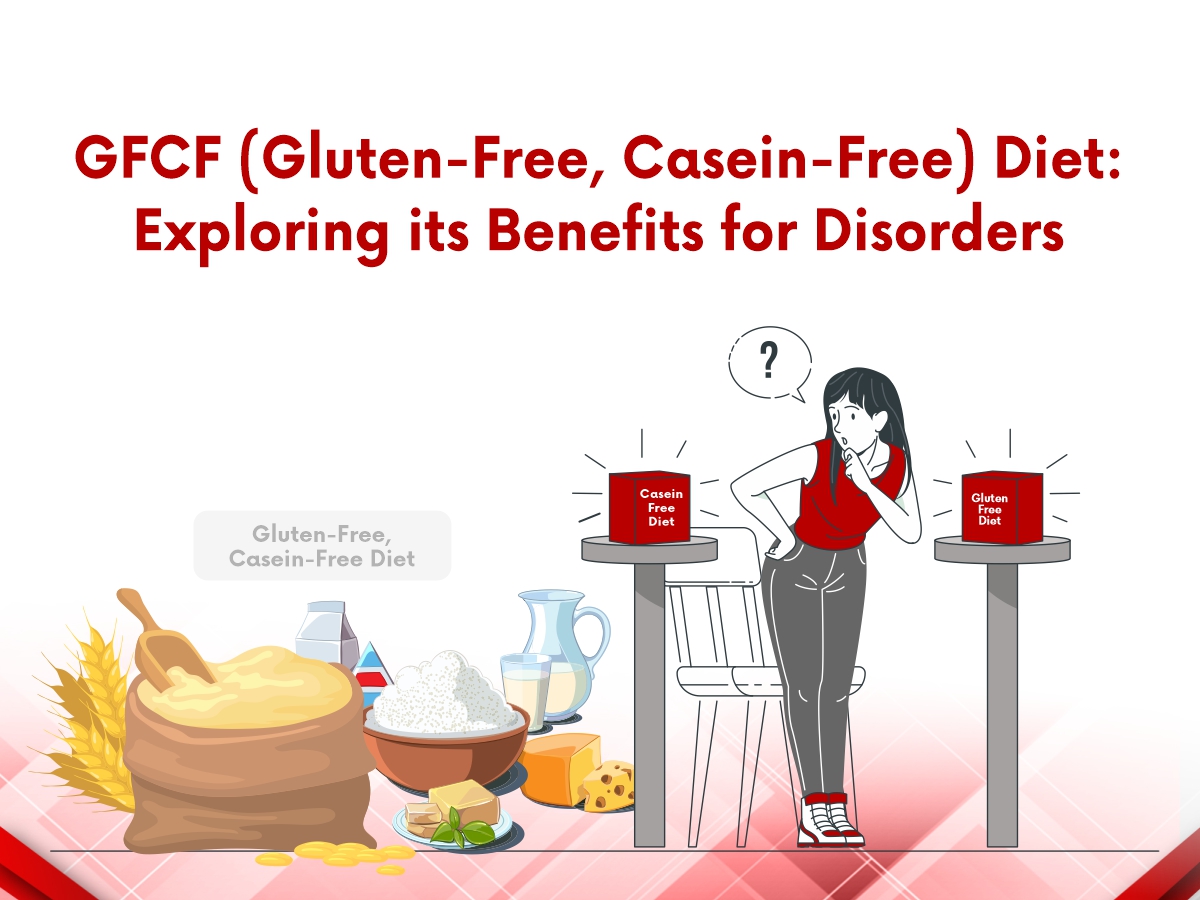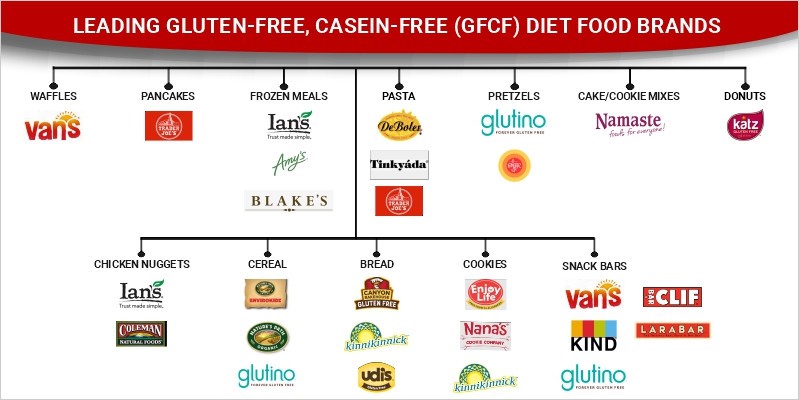
Special diets are necessary for people with metabolic and digestive issues to refrain from foods that can cause allergies or damage to the digestive system. This can be achieved using a variety of “elimination” diets.
There are numerous dietary guidelines and principles that benefit kids with various disorders like ADHD, asthma, allergies, and autism, as well as people with coeliac disease, colitis, Crohn’s disease, irritable bowel syndrome, anxiety, and depression.
One such example of an elimination diet is the Gluten-Free, Casein-Free (GFCF) Diet. All sources of gluten and casein are eliminated from meals when following the GFCF diet. This is a common outlook when treating children with autism. The market for gluten-free goods was estimated to be worth USD 5.9 billion in 2021 and is anticipated to increase at a CAGR of 9.8% from 2022 to 2030.
Casein and gluten are two naturally occurring proteins that are present in food. Gluten is found in wheat, oats, rye, and barley, and casein is found in dairy products such as cow’s milk, goat’s milk, butter, yoghurt, ice cream, cheese, and cream.
These proteins may trigger several symptoms in certain people, including stomach aches, bloating, or changes in bowel patterns; they may also exacerbate inflammatory conditions including allergies or autoimmune diseases. Your doctor may advise adhering to a diet that excludes either gluten, casein, or both proteins for a brief or prolonged amount of time to reduce your symptoms, depending on your clinical presentation.
You’ll start to understand the importance of Gluten-Free, Casein-Free (GFCF) Diet after you learn what gluten and casein may do to some people’s health.
This is a fair reason to effectuate a GFCF diet for your autistic child. It is always worthwhile to try something at home if it is safe and might benefit your child.
You will probably notice changes in your child’s health and capacity to learn simply by removing gluten and dairy from their diet.
Parents report improvements in the following areas after implementing the diet:
For healthy brain development, folate is essential. Current studies, however, indicate that many kids with autism may suffer from cerebral folate deficiency, a disorder marked by low levels of folate in the brain.
Folate is crucial because it aids in the metabolism of purines and pyrimidines, which make up RNA and DNA. They are required for proper energy production.
Gluten and casein block the folate receptors, and the body uses folate for the development of the brain.
Gluten contains a significant amount of zonulin, a substance that increases intestinal permeability, commonly known as “leaky gut.”
The digestive tract of children with autism exhibits heightened reactivity to food ingredients because of increased gut permeability. As a result, the child develops sensitivity to whatever food they eat commonly.
Although the reactions can differ from child to child, the main symptoms include difficulties concentrating, constipation, diarrhoea, and generalised inflammation.
Anxiety and depression may also be affected by a leaky gut.
An opioid response to long-chain peptides (gluten and casein) results in a high pain threshold and a dizzy, confused feeling that is comparable to being intoxicated. This explains why many parents claim that “the fog cleared” after implementing a gluten- and casein-free diet.
About 25% of glutamic acid can be found in casein and gluten. These proteins form free glutamate when they are broken down, pasteurised, or processed, which is problematic since it causes inflammation.
This can be concerning because elevated levels of glutamate and low levels of GABA in the brain are linked to restlessness, tics, headaches, and Complex Motor Stereotypies, which express as flapping or stimming.
There must be a balance between the excitatory neurotransmitter, glutamate and the calming neurotransmitter, GABA. According to studies, GABA must be elevated while glutamate must be reduced in autism.
An increase in the passage of dietary and microbial antigens interacting with immune system cells when the gastrointestinal barrier function is disrupted (as stated in “leaky gut” above) results in inflammation.
A growing child may not always benefit from these hormones.
In addition, hormone exposure from dairy products has been linked to early puberty and has even been linked to the growth of cancerous cells.
Almost 70% of the estrogens in the average person’s diet come from dairy.

Not everyone can follow a gluten-free and dairy-free diet. The process of eliminating these from your diet might be very difficult. Additionally, it’s not necessary for everyone because some people’s bodies can tolerate dairy and gluten.
Gluten must be avoided by people with autism, diabetes and celiac disease or non-celiac gluten intolerance. Registered dietitians can help people with these conditions develop healthy meal plans.
Maintaining the GFCF diet in the case of autism can be challenging. Autistic children are frequently fussy eaters; this diet frequently eliminates several of their main foods. Since many GFCF replacements can be considerably more expensive, the diet can also put a strain on one’s finances. If the diet is not under the care of a dietitian or doctor, there is a risk of nutritional deficiencies. It is important to monitor your consumption of calcium, protein, and total calories.
However, if you experience any of the aforementioned problems, it may be worthwhile to at least attempt cutting out gluten and dairy for a while to see how your body reacts.
© Copyright 2024 – Wissen Research All Rights Reserved.